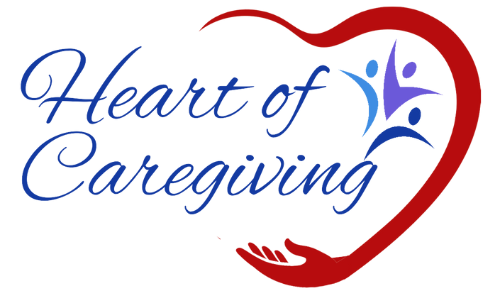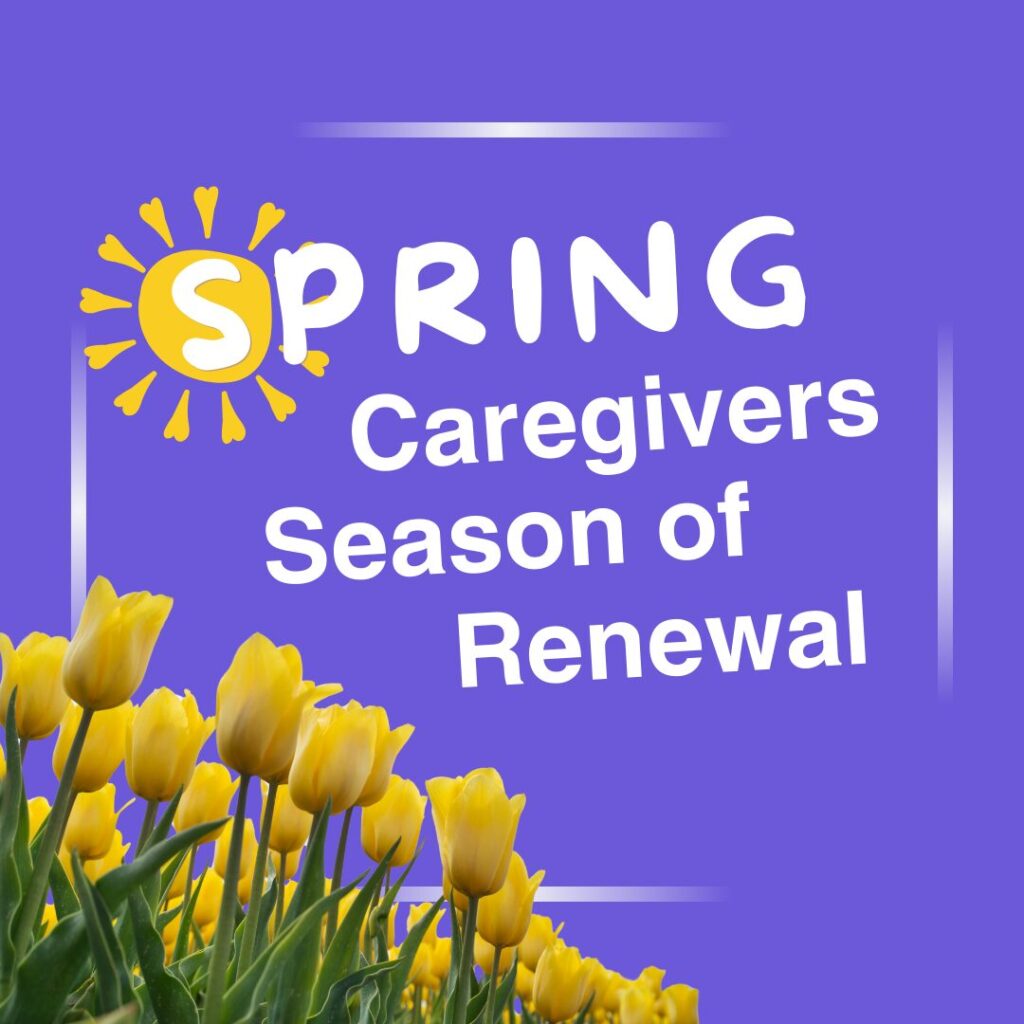Lessons from Nature:
What Spring Teaches Us About Caregiving
The Caregiver’s Season of Renewal
Spring is a season of renewal, a time when nature reminds us that growth is possible even after the harshest winters. It’s a season of transformation—of letting go of the old to make space for the new. As caregivers, we often carry emotional and mental burdens that weigh us down, much like overgrown weeds in a garden. But just as spring breathes new life into the world around us, it also offers us an opportunity to refresh our mindset, nurture ourselves, and embrace the natural cycles of caregiving.
Nature is full of wisdom. It teaches us how to let go, how to cultivate growth, and how to embrace change. By taking inspiration from the world around us, we can renew our caregiving journey with a fresh perspective and a lighter heart.
1. Clearing the Weeds: Letting Go of Mental and Emotional Clutter
In gardening, weeds can take over quickly, stealing nutrients and space from the plants we want to thrive. The same is true for caregivers—negative emotions, self-doubt, and guilt can crowd out our well-being and energy if we don’t tend to them.
Common “weeds” caregivers deal with:
→ Guilt: Feeling like no matter what you do, it’s never enough.
→ Resentment: Frustration over a lack of support or personal sacrifices.
→ Self-Criticism: Holding yourself to an impossible standard.
Just as a gardener pulls weeds to give plants room to grow, caregivers must clear away thoughts and emotions that no longer serve them.
Strategies for “weeding” your mindset:
🌷 Identify and challenge negative thoughts. Ask yourself, “Would I say this to a friend?” If not, why say it to yourself?
🌷 Set boundaries that protect your well-being. Just as a garden needs fences to protect it, caregivers need boundaries to preserve their energy.
🌷 Make space for self-compassion. Acknowledge that you’re doing your best, and that’s enough.
By removing the emotional clutter, you make space for what truly matters—growth, connection, and peace.
2. Opening the Windows: Refreshing Your Perspective
One of the first things we do in spring is open the windows, letting in fresh air after a long winter. As caregivers, we can do the same for our mindset—letting go of rigid expectations and allowing new perspectives to flow in.
Nature’s lesson: Change is natural and necessary.
→ Trees shed their leaves to make room for new ones.
→ Rivers keep flowing, adapting to obstacles in their path.
→ Flowers bloom when the conditions are right, not before.
In caregiving, change is constant. Instead of resisting it, we can learn to flow with it, just as nature does.
Simple ways to refresh your caregiving outlook:
🌷 Shift your focus from what you can’t control to what you can.
🌷 Recognize and celebrate small victories, no matter how small they seem.
🌷 Find moments of beauty and gratitude, even in difficult times.
Like a fresh breeze through an open window, shifting your mindset can bring clarity and lightness to your caregiving journey
3. Planting Seeds of Growth: Nurturing Yourself While Caring for Others
Just as flowers and trees need sunlight, water, and nutrients to grow, caregivers need care, too. Growth doesn’t happen overnight—it’s about planting small seeds of self-care and nurturing them consistently.
Nature’s lesson: Even the tallest trees started as tiny seeds.
Caregiving often feels all-consuming, but taking small moments for yourself is not selfish—it’s essential.
Simple, sustainable ways to nurture yourself:
🌷 Spend time outdoors for fresh air and movement. Even five minutes outside can shift your energy.
🌷 Engage in hobbies that bring you joy (reading, journaling, listening to music).
🌷 Set aside small moments for relaxation and mindfulness. A deep breath, a stretch, or a quiet moment with tea can make a difference.
By tending to your own well-being, you create a strong foundation—not just for yourself, but for those you care for as well.
4. Cultivating Support: You Don’t Have to Grow Alone
A garden thrives best when plants support each other. Some plants provide shade, while others enrich the soil. Caregivers, too, need a strong root system of support.
Nature’s lesson: Even the most resilient plants rely on their environment to flourish.
Caregiving is not meant to be a solo journey. Accepting help and building a support network can make all the difference.
Ways to cultivate your own support system:
🌷 Reach out to friends, family, or caregiver groups.
🌷 Accept help without guilt—allow others to “water” your needs, too.
🌷 Seek professional guidance when needed.
Just as a thriving ecosystem depends on balance, so does a caregiver’s well-being. Lean on others, and let them lean on you.
Embracing the Caregiving Seasons
Nature reminds us that life is cyclical—there are seasons of struggle and seasons of growth. Caregiving has its own seasons, too. There will be challenges, but there will also be moments of beauty, connection, and renewal.
By learning from nature, we can navigate the ups and downs of caregiving with resilience, grace, and hope. This spring, take a moment to breathe, embrace change, and allow yourself to grow alongside the season.
Just like the flowers that bloom after winter, caregivers, too, are capable of incredible renewal. 🌿
a free lesson from my online course,
21 Mistakes Caregivers Make Solutions Course
Caregiving can be overwhelming, but small, meaningful shifts can transform your experience.
Caregiving and happiness can seem mutually exclusive when struggles and worry are all-consuming. We put our happiness on hold, wait for life to be less stressful, and miss out on some of our best opportunities to experience joy. What if there is an alternative?
In Lesson Seven, you will discover the four steps to help us find and embrace happiness while facing caregiving struggles.
For solutions for caregivers’ common mistakes, check out 21 Mistakes Caregivers Make & How to Avoid Them: Solutions and Strategies to Reduce Stress and Increase Happiness, available on Amazon! Are you looking for a dynamic speaker on caregiver empowerment? Go to my speaking page, and let’s connect!
The advice offered is for general information only; please consult your healthcare team, legal, or financial advisors for guidance.


